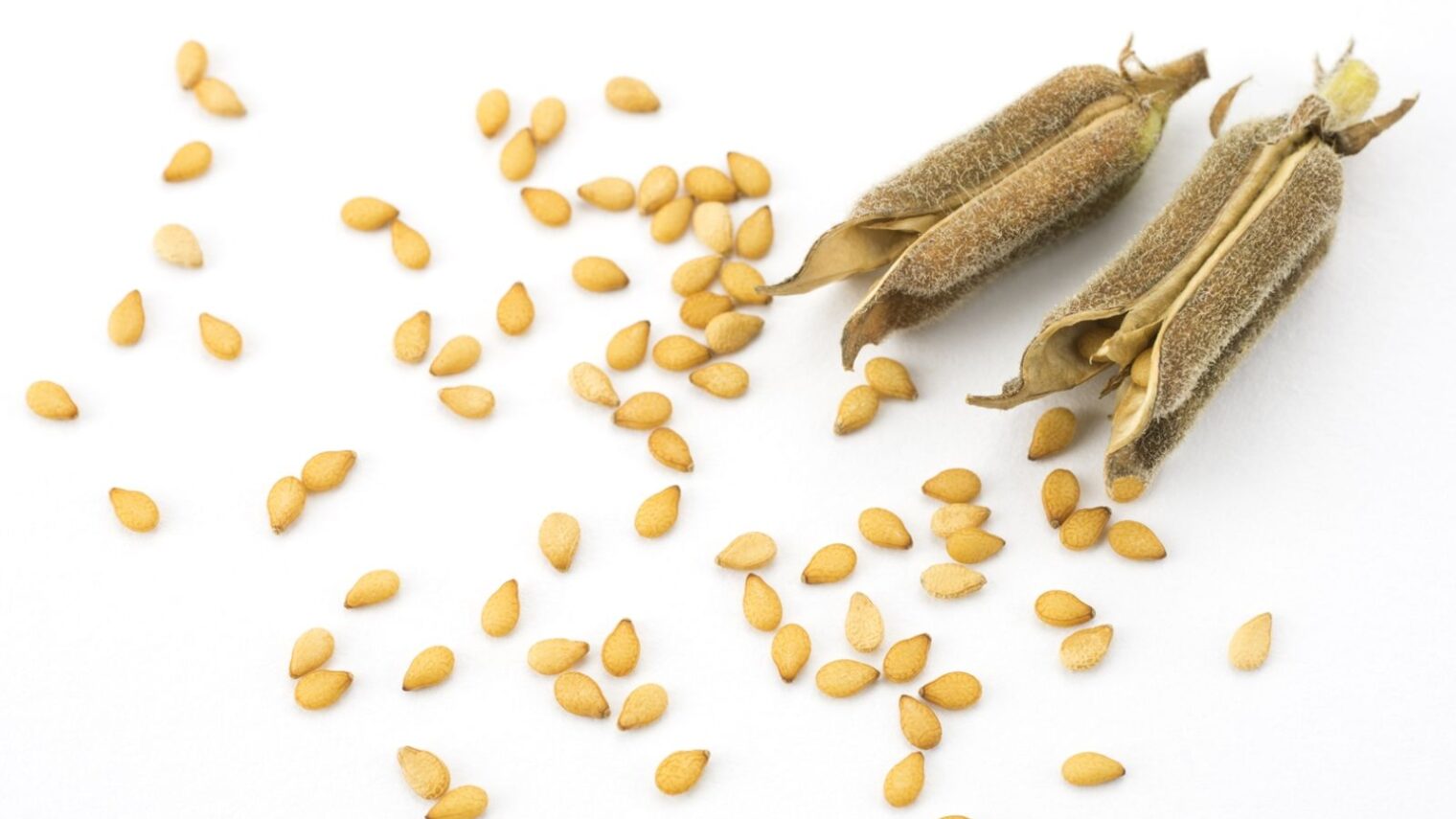Sesame seeds aren’t just little white specks on top of hamburger buns. Chock full of protein, iron, zinc and calcium, these nourishing, oil-rich seeds form the basis of Mideast cuisine staples becoming popular worldwide, such as tahini, hummus and halva. Sesame oil is essential in many Asian and African dishes.
Yet even though sesame has been cultivated for some 5,500 years, the crop has traditionally been unprofitable because it is difficult to harvest and produces a low yield. Part of the problem is that a high percentage of sesame seeds are found to be unfit for human consumption.
Recently, an Israeli agricultural researcher won an award for fine-tuning a way to enhance the yield, size and even the nutritional quality of sesame, using genetic markers to indicate which strains have the most potential.
After meticulously screening and selectively breeding more than 100,000 sesame-seed variants of many different hues at his lab, Hebrew University Prof. Zvi Peleg developed an improved sesame cultivar with bigger seeds, more seeds per pod and better bioavailability of the nutrients in the seeds. He and his team are also working to make sesame pods that can be picked by machine rather than by hand.
This is good news for consumers and also for the Israeli agriculture sector.
“The increase in global demand for sesame products as a health food has turned this highly domestic consumption item into an important export commodity for Israel,” said Peleg.
Global production of sesame currently stands at 4.4 million tons, with a projected growth value of between 5 and 10 percent yearly.
Peleg’s innovation enables cereal-crop farmers to grow high-yield sesame in the summer period of their annual crop-rotation cycle. This has many benefits aside from the ability to sell the produce, because summer planting contributes to more sustainable agriculture while the variation in crops prevents the development of herbicide-resistant weeds. Though Israel is rain-free in the summer, sesame plants are naturally drought-resistant and don’t need much water.
This video shows his team planting the seeds for the sesame experiment last year, and the photo below shows how it looked later.
In recognition of his finding, Peleg was awarded the 2015 Kaye Innovation Award, an honor endowed by British pharmaceutical industrialist Isaac Kaye in 1994 to encourage Hebrew University faculty, staff and students to develop innovative methods and inventions with good potential to be successful commercially and to benefit society.
Peleg conducts his research at the Hebrew University’s Robert H. Smith Faculty of Agriculture, Food and Environment, located on the university’s Rehovot campus. He serves on the editorial boards of various peer-reviewed plant journals.
Peleg studies how cereal crops adapt to environmental stresses, and identifies the genes involved in these adaptations using approaches from whole-plant physiology, biochemistry, functional genomics and bioinformatics. “Our goal is to discover novel genes and traits that will be used as bases for future breeding programs to increase productivity under stressful conditions.”
This month, he and a colleague from the University of Melbourne will lead a joint workshop on biological methods to sustain crop production under stressful conditions amid increasing food demands.














